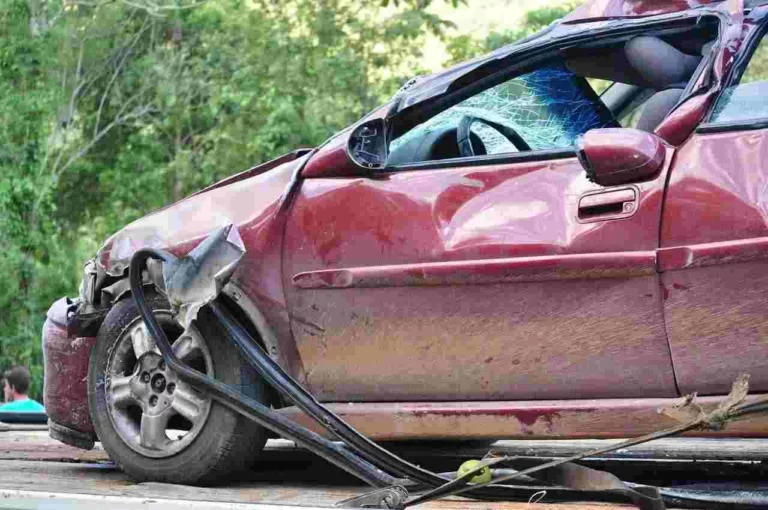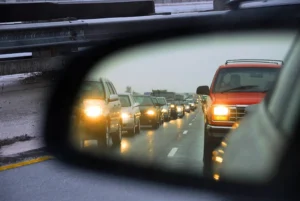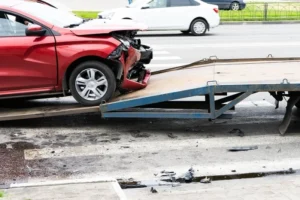Car Accident Lawyer Florida

If you’ve been involved in a car accident in Florida, navigating the complex legal process can be daunting. At Weston & Pape, our team of experienced car accident lawyers is here to help you understand your rights and pursue the compensation you deserve. With our proven track record of success, we have helped countless clients recover damages for their injuries and losses. If you’re facing medical bills, lost wages, and emotional distress due to a car accident, don’t hesitate to contact us at 561-299-3999 for a free consultation. We’re committed to fighting for your rights and providing the legal guidance you need during this challenging time.
Understanding the Scope of Damages in Florida Car Accident Claims

Car accidents are not just distressing events but can also result in significant physical, emotional, and financial burdens for those involved. In the state of Florida, understanding the types of damages recoverable in car accident claims is crucial for individuals seeking compensation for their losses. From medical expenses to lost wages and emotional distress, let’s delve into the various categories of damages that may be pursued in a car accident claim in Florida.
Medical Expenses
One of the primary and most significant forms of damages in car accident claims is medical expenses. These damages encompass both the immediate and long-term medical costs incurred as a direct result of the injuries sustained in the collision. This category of damages can include a wide range of healthcare-related expenses, beginning with emergency medical treatment at the scene of the accident or shortly thereafter, such as ambulance transportation, emergency room visits, diagnostic tests like X-rays or MRIs, and initial evaluations by medical professionals. If surgery is required, the costs associated with the procedure itself, anesthesia, hospital stays, and postoperative care can also be claimed.
Beyond the initial treatment, ongoing and future medical needs are also considered. Many car accident victims require physical therapy, occupational therapy, chiropractic care, or pain management treatments to recover fully or manage chronic conditions caused by the crash. Additionally, follow-up appointments with specialists, psychological counseling for accident-related trauma, and the costs of durable medical equipment such as crutches, braces, wheelchairs, or other assistive devices are all compensable under medical expenses.
In cases where the injuries result in permanent disability or long-term medical conditions, projected future medical expenses become a crucial component of the claim. These may include the anticipated cost of continued treatments, medications, in-home care, and other necessary support services that the injured party may need for months or years to come. Even expenses like travel to and from medical appointments or modifications to a home to accommodate mobility issues can be included.
All reasonable and necessary medical costs that arise as a direct consequence of the accident can and should be pursued in a personal injury claim. Proper documentation, including medical records, bills, physician notes, and expert medical opinions, plays a critical role in substantiating these expenses and ensuring that the injured party is fairly compensated for their healthcare needs.
Lost Wages
Injuries sustained in a car accident can often result in significant time away from work, leading to a substantial loss of income. Lost wages are one of the key components of a car accident claim, as they directly reflect the financial impact that the injury has had on the victim’s ability to earn a living. This form of compensation not only accounts for the income missed during the initial recovery period but also includes the loss of any future earnings if the injuries lead to long-term or permanent disability, require career changes, or result in a reduced capacity to perform the same job as before.
For many individuals, the inability to work—whether temporarily or permanently—can create serious financial strain. Lost wages may include regular hourly or salaried income, bonuses, commissions, overtime, and even missed opportunities such as promotions or project-based incentives. For self-employed individuals or independent contractors, income loss can be calculated by comparing prior earnings history and projected contracts or client work that could not be fulfilled due to the injury.
In more severe cases, if the accident causes a long-term impairment or permanent disability that limits future employment options or results in early retirement, a claim may also include loss of earning capacity. This calculation considers what the injured party reasonably could have earned over their lifetime had the accident not occurred, factoring in education, experience, and career trajectory.
To establish and support a claim for lost wages, comprehensive documentation is essential. This may include recent pay stubs, W-2 forms, tax returns, direct deposit records, medical reports that outline work restrictions, and written statements from employers verifying time missed from work and changes to job responsibilities. For future income loss or diminished earning potential, expert testimony from vocational or economic professionals may be needed to provide projections and strengthen the claim. By thoroughly documenting lost wages, injured individuals can seek fair compensation that reflects the full extent of their financial hardship caused by the accident.
Property Damage
Property damage is another common and important type of damage included in car accident claims. This category of damages primarily refers to the repair or replacement costs associated with the vehicle that was involved in the accident. In many cases, the vehicle sustains significant damage, and depending on the severity, it may either be repaired or deemed a total loss, requiring replacement. In addition to the vehicle itself, property damage can also extend to any personal items that were inside the vehicle at the time of the accident and were damaged or destroyed. This may include things like smartphones, laptops, eyeglasses, child car seats, or any valuable belongings that were affected by the collision.
Accurately documenting property damage is essential when filing a claim, as it provides a clear picture of the financial losses suffered as a result of the accident. To support a property damage claim, it’s important to collect as much evidence as possible. This typically includes repair estimates from certified auto repair shops, invoices for completed repairs, receipts for any replaced personal items, and photographs showing the extent of the damage to both the vehicle and other affected property. These records help establish the monetary value of the losses and are critical in negotiating with insurance companies.
In some cases, a vehicle’s value may be diminished even after it has been fully repaired—this is known as diminished value. A diminished value claim seeks compensation for the reduced market value of a vehicle that has a history of being in an accident, even if it is now in drivable condition. This is another aspect of property damage that may apply and can be pursued with proper documentation and valuation support.
By compiling all relevant documentation and understanding the full extent of what property damage entails, accident victims can strengthen their claim and improve their chances of receiving fair compensation for all items affected by the crash.
Pain and Suffering
Beyond tangible economic losses, car accident victims may also be entitled to compensation for pain and suffering endured as a result of the accident. This includes physical pain, emotional distress, and mental anguish experienced due to the injuries and their impact on daily life. While quantifying pain and suffering is subjective, factors such as the severity of injuries, duration of recovery, and overall impact on quality of life are taken into consideration.
Loss of Consortium
In cases where the injuries from the car accident have significantly impacted the victim’s relationship with their spouse, loss of consortium damages may be pursued. This includes loss of companionship, support, and intimacy suffered by the spouse of the injured party. Evidence such as testimonies from family members and mental health professionals may be utilized to support these claims.
Punitive Damages
In certain cases involving extreme negligence or intentional misconduct, punitive damages may be awarded in addition to compensatory damages. Punitive damages are meant to punish the at-fault party and deter similar behavior in the future. However, they are relatively rare and typically reserved for cases involving egregious wrongdoing.
Navigating the complexities of car accident claims in Florida requires a thorough understanding of the types of damages recoverable and the legal processes involved. Seeking guidance from experienced personal injury attorneys can greatly enhance the likelihood of obtaining fair compensation for your losses. By documenting the extent of your injuries, financial losses, and other damages, you can strengthen your case and pursue the compensation you rightfully deserve.
Remember, each car accident case is unique, and the damages recoverable may vary based on the specific circumstances involved. Consulting with legal professionals who specialize in personal injury law can provide valuable insight and advocacy throughout the claims process. If you or a loved one has been injured in a car accident in Florida, don’t hesitate to seek legal assistance to protect your rights and pursue justice.
Essential Steps to Follow After the Incident
Being involved in a car accident can be a disorienting and stressful experience, but it’s crucial to stay calm and take the necessary steps to ensure your safety and protect your legal rights. If you find yourself in this situation on the roads of Florida, here are the essential steps to take after a car accident:
Check for Injuries
The first priority after a car accident is to check yourself, your passengers, and anyone else involved for injuries. If anyone is injured, call 911 immediately to request medical assistance. Even if injuries seem minor, it’s essential to seek medical attention promptly, as some injuries may not be immediately apparent.
Move to Safety
If it’s safe to do so, move your vehicle to the side of the road to avoid blocking traffic and reduce the risk of further accidents. Turn on your hazard lights to alert other drivers of the situation. However, if moving the vehicles is not possible or safe, it’s best to leave them where they are until help arrives.
Contact Law Enforcement
In Florida, it’s required by law to report a car accident to the police if it results in injury, death, or property damage exceeding $500. Even if the accident seems minor, it’s still advisable to contact law enforcement to document the incident. When the police arrive, provide them with accurate and factual information about the accident.
Exchange Information
Exchange contact and insurance information with the other parties involved in the accident. Be sure to obtain their names, phone numbers, addresses, insurance policy numbers, and vehicle registration details. Additionally, gather contact information from any witnesses to the accident, as their statements may be valuable during the claims process.
Document the Scene
Take photographs of the accident scene, including vehicle damage, skid marks, road signs, and any visible injuries. These photos can serve as valuable evidence when filing an insurance claim or pursuing legal action. Additionally, write down a detailed account of what happened, including the sequence of events leading up to the accident.
Notify Your Insurance Company
Promptly notify your insurance company of the accident and provide them with all relevant details. Follow their instructions for filing a claim and provide any requested documentation, such as police reports and medical records. It’s essential to be honest and accurate when communicating with your insurance company to avoid potential complications with your claim.
Seek Medical Attention
Even if you don’t believe you’re seriously injured, it’s still crucial to seek medical attention after a car accident. Some injuries, such as whiplash or internal trauma, may not present symptoms immediately but can worsen over time if left untreated. A medical evaluation can also provide documentation of any injuries sustained in the accident, which is important for insurance claims and legal proceedings.
Consult with a Personal Injury Attorney
If you’ve been injured in a car accident due to someone else’s negligence, consider consulting with a personal injury attorney. An experienced attorney can help protect your rights, navigate the legal process, and ensure you receive fair compensation for your injuries and damages. They can also handle negotiations with insurance companies on your behalf and, if necessary, represent you in court.
By following these essential steps after a car accident in Florida, you can help ensure your safety, protect your legal rights, and facilitate the claims process. Remember to stay calm, prioritize safety, and seek assistance from medical professionals and legal experts as needed.
Speak to a Skilled Car Accident Attorney in Florida
if you’ve been injured in a car accident in Florida, Weston & Pape is here to support you every step of the way. Our dedicated team of car accident attorneys understands the challenges you’re facing and is committed to fighting for your rights. With our extensive experience and personalized approach, we’ll work tirelessly to secure the compensation you deserve for your injuries and losses. Remember, you don’t have to navigate this difficult time alone. Contact Weston & Pape today at 561-299-3999 for a free consultation. Let us advocate for you and help you move forward with confidence.


 Call Us Today - It's Free
Call Us Today - It's Free